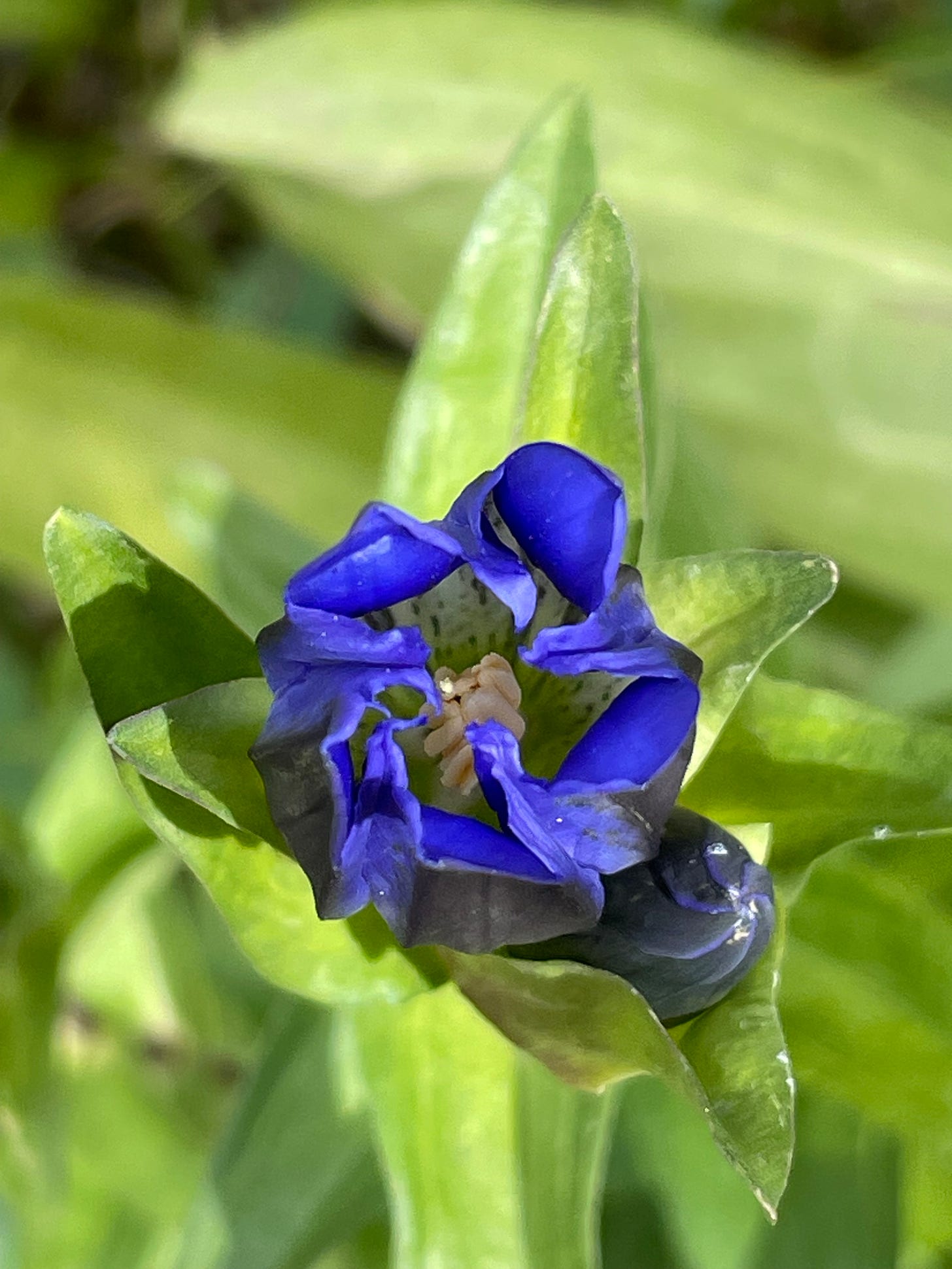Weaving Creative Life and Spiritual Life
Mirabai Starr on writing Ordinary Mysticism: Your Life as Sacred Ground
“Spiritual books in general feel pretentious most of the time—too preachy, didactic—so there was an intimacy and quality of companioning I was hoping for.” —Mirabai Starr, on writing Ordinary Mysticism
Preview: Episode 120 with Mirabai Starr
“There is a co-creative dance that happens as an artist where you allow yourself to be empty, step to the side and let the thing come through,” says Mirabai Starr, speaking of writing her newest book Ordinary Mysticism: Your Life as Sacred Ground. In this episode, the award-winning author, internationally acclaimed speaker and leading teacher of interspiritual dialogue talks with us about building on the ideas of others to create her books, how thinking of specific readers helps shape the tone of a book, embracing the imagination in both creative and spiritual practice, and dismantling hierarchy in mentor/protege relationships.
In 2020, Mirabai Starr was honored on Watkins’ list of the 100 Most Spiritually Influential Living People. Drawing from twenty years of teaching philosophy and world religions at the University of New Mexico-Taos, Starr now travels the world sharing her wisdom on contemplative living, writing as a spiritual practice, and the transformational power of grief and loss. She has authored over a dozen books, including Wild Mercy, Caravan of No Despair, and God of Love. Starr has received critical acclaim for her revolutionary contemporary translations of the mystics John of the Cross, Teresa of Avila and Julian of Norwich. Starr continues to teach seminars, workshops and retreats, both in person and through her online community, Wild Heart. She lives with her extended family in the mountains of northern New Mexico.
What We’re Reading and Listening to:
Rosemerry:
“We might call both poetry and physics arts of translation,” writes Katie Prince in “Stellar Collisions: On the Compatibility of Physics and Poetry,” published in The Adroit Journal. “There is a desire for metaphor; there is a need to fit language around what is wordless, strange, inexplicable.” I appreciate the way this essay points both the differences between scientists and poets, but mostly explores how they might have a lot to offer each other as they share common goals—like on this podcast!
What do seggs, corn and Yahtzees have in common? This article in The New Inquiry turns a TikTok phenomenon into a complex discussion of euphemisms, censorship, linguistic taboo, and language acquisition. Who needs protection from language? And why? What are the unspoken rules of polite speech? What does it mean when we subvert them?
Peter Anderson’s most recent book, Riding the Wheel, is so deeply steeped in place—the San Luis Valley, a place I love—in the interstice of mountains and desert. I love how it is also deeply steeped in multiple genres—the lushness of his prose poem and the spare beauty of his haiku. In this book, Peter pledges his allegiance "to the big wheel of life" and honors that wheel on every page. I sighed out loud so many times reading this book.
Christie:
My book club is reading Wellness by Nathan Hill this month, and I was pleasantly surprised to find that the novel explores two of my favorite topics at length — placebos and uncertainty. It’s a novel about a marriage and the stories we tell ourselves, and yes, placebos and uncertainty. Recommend!
Rose Eveleth was our guest on episode 16 and she has a wonderful new podcast series out, TESTED. It’s about gender testing in sport, a subject that I have strong feelings about. Rose takes a deep dive into the subject, give it a listen.
What She Taught Me About How to Meet Those Who Grieve
for Mirabai Starr
She taught me it is enough to sit
with someone who is grieving—
to sit and listen with your whole body
as if eyes could hear as well as ears,
as if a person’s silence is as essential as her words.
She taught me it is a gift to say
the name of the one who is gone—
such powerful balm, that briefest
of songs, the name.
She taught me to light a candle
and to promise to not blow it out,
not even after the conversation is done.
She taught me the solace
of offering no wisdom, asking no questions.
She gave me the gift of myself. And met me there.
—Rosemerry Wahtola Trommer
A Note About Paid Subscriptions:
First, we want to thank ALL our subscribers! We are so grateful you join us in this conversation about what it is to engage with yourself, the world and others in a creative way. And a BIG thank you to our paid subscribers. You make this podcast possible. Starting this month, only our paid subscribers will receive our bonus episodes as a thank you for their financial support.
This week, we talk with Mirabai about being the middle-school student of Natalie Goldberg in the seventies and how their relationship has changed, tears as a way to divine when you’ve struck gold in your practice, the art of not writing, and the sacredness of everything. If you are not yet a paid subscriber, you can go now to our website, EmergingForm.substack.com, or by clicking the button below. Thank you!
Two Questions:
(share your answers with us here on Substack or in our FB group)
Who is your ideal reader?
In what ways does your creative practice inform your spiritual practice?
Emerging Form is a reader-supported publication. To receive new posts and support our work, consider becoming a free or paid subscriber.





My creative practice and my spiritual practice are entirely interwoven and inseparable. There would be no creativity in my life if I weren't constantly honoring the sacredness of this earth and we who share the planet.